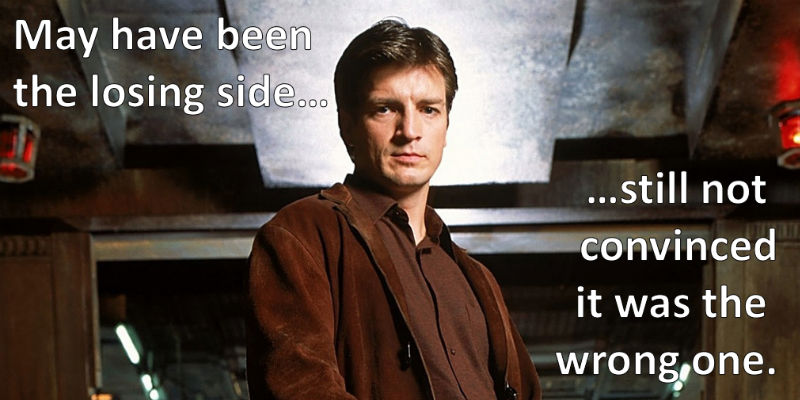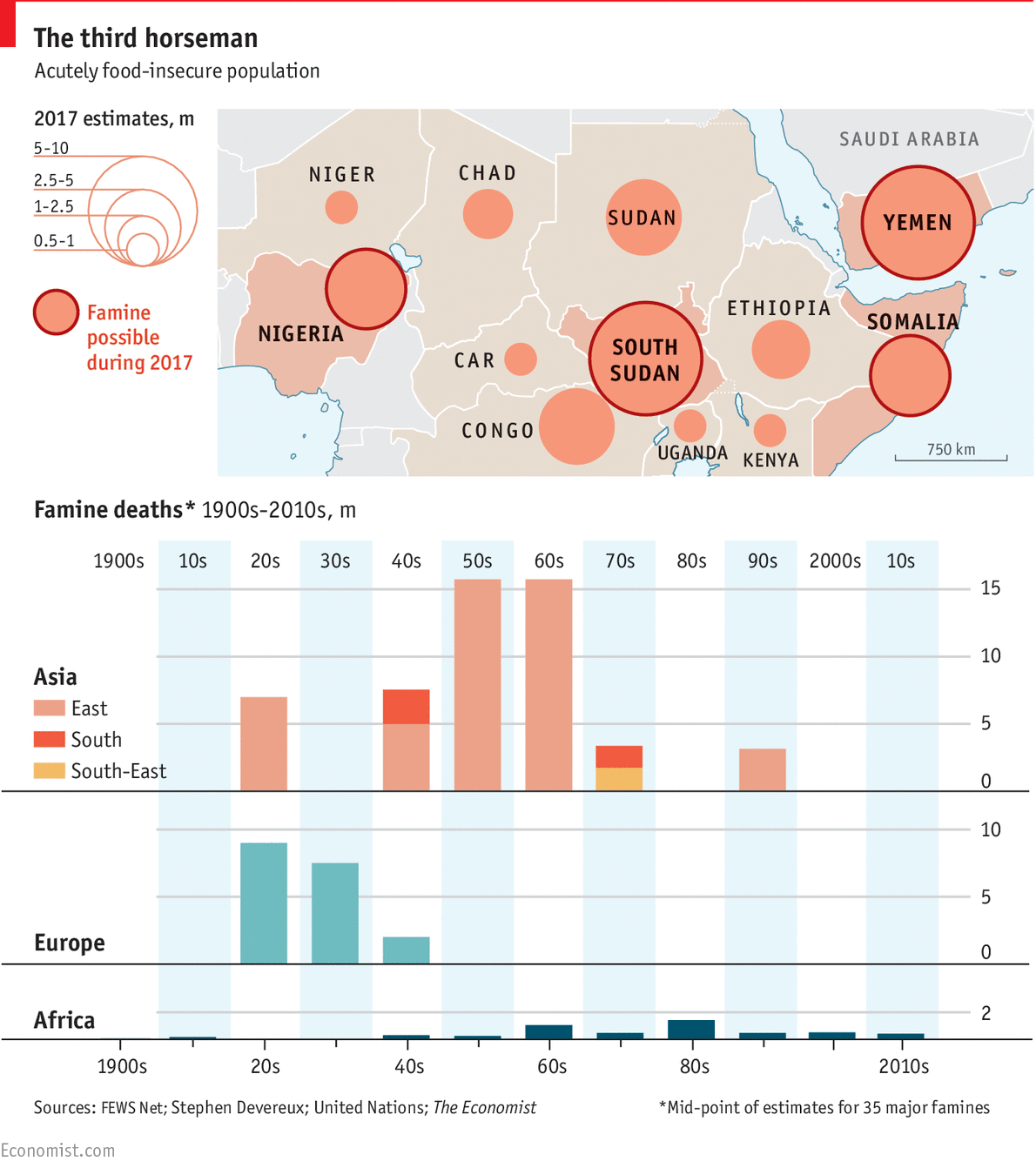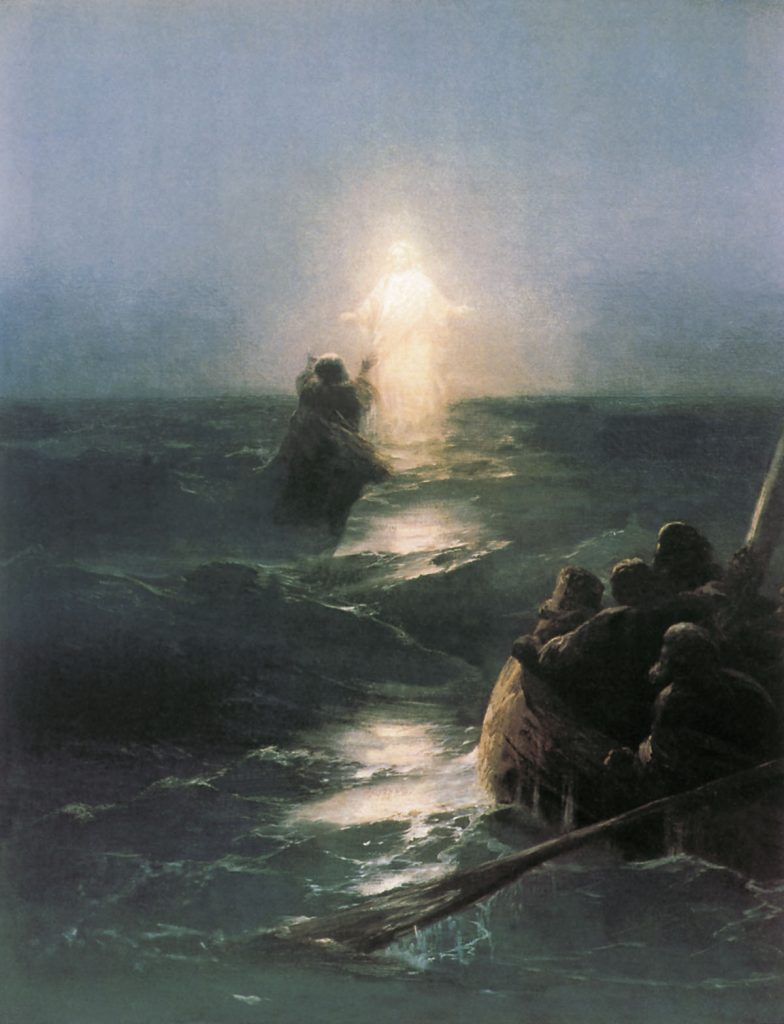This post is part of the General Conference Odyssey.
This is a principle that I have long suspected is true, but have not seen stated plainly very often. I think that’s because it’s an easy principle to misunderstand. God is the God of Nature. That’s true. But the idea that you can worship as easily in the woods as you can in the pews is false. It takes one true principle—God is the God of Nature—but forgets another—we are saved together and not alone. The important part of going to church is not the building or the pews.[ref]Anyone who has seen our pathologically ugly cinder-block meeting houses intuits this at once.[/ref] It is the other people sharing the building and the pews next to us.
Same basic idea here: the church exists to serve the family and not the other way around, but—perhaps—there’s a risk of the teaching being used as a rationalization to shirk responsibility that need not be shirked. In any case, I highlighted an awful lot of Elder H. Burke Peterson’s talk, with passages like this:
May I suggest that many of us have lost sight of one of the most important reasons for our holding the priesthood. To be an effective teachers quorum president, elders quorum president, bishop, or counselor is important—we spend many hours in training these officers. To perform the vital priesthood ordinances is essential. But even more important than all these is the need to learn how to use the priesthood to bless our families and homes.[Emphasis added. Then added some more.[/ref]
There’s always a risk of taking a single passage—or even a single talk—and making too much of it. One of the major reasons for this entire General Conference is precisely to avoid that. To see a large volume of prophetic preaching in context. But I don’t think I’m stretching too far because the centrality of the family is a central teaching across all the conferences we’ve read, even if it’s not always expressed in such start terms. Elder Peterson goes on:
If we live for it, ours can be a power given us from our Heavenly Father that will bring peace to a troubled household. Ours can be a power that will bless and comfort little children, that will bring sleep to tear-stained eyes in the wee hours of the morning. Ours can be the power that will bring happiness to a family home evening, the power to calm the unsettled nerves of a tired wife. Ours can be the power that will give direction to a confused and vulnerable teenager. Ours, the power to bless a daughter before she goes on her first date or before her temple marriage, or to bless a son before his departure for a mission or college.
Let me emphasize: these are not suggestion for auxiliary or optional exercise of priesthood power. This is it. Actions like these—the service of our family—is the whole point. It’s the rest—the Church and all its ordinances—that are appendages to the family, and not the other way around. Families are not God’s preferred method of raising new church members. The Church is an instrument by which God intends to reclaim His family. Or, as Elder Peterson puts it:
When we have the power to bless families in some of the ways mentioned, then we are using this God-given authority for its most exalted purpose—to bind family ties and perform priesthood ordinances that will endure through the eternities.[ref]Emphasis added.[/ref]
That—brothers and sisters—is what it’s all about. The whole point. I don’t think we get it. And I think the failure to grasp the correct priority, family then Church, is a major contributing factor leading to misunderstanding of so many of the moral issues where well-intentioned members are hoping for changes from the Church that, frankly, will never come.[ref]I have no grounds to make that claim authoritatively. I’m simply expressing my view of the implications of the theological primacy of the family in conjunction with the Church’s repeatedly-demonstrated willingness to fight and die on this particular hill.[/ref]
So, where does this lead? One more quote to leave on:
He who has developed the power and uses it to do the things we have mentioned will honestly consider the righteous desires of his family, even though they may not be exactly the same as his. He will listen to those in his home with the same attention he would give a priesthood leader. He will listen—even to the smallest child.
He will put his family’s welfare ahead of his own comfort.
He will learn to control himself. He will not use a quick temper as an excuse—he will rise above it. It needn’t always be with him.
He will understand that a soft answer turneth away wrath. His voice will never be heard in anger in his home; he will never punish in anger.
As one of his most significant attributes, he who has developed this priesthood power will not only by his thoughts but also by his actions give honor, respect, and dignity to the loveliest of the Lord’s creations—his daughters.
God knows I desperately wish my wife and my children could have a husband and father like the man described here. Since they’re stuck with me instead, it is my greatest desire to become that man.[ref]My second-greatest desire is for them to be able to forgive me for who I am in the meantime. My third-greatest desire is to be a world-famous author.[/ref]
I believe Jesus can fix what is broken, find what is lost, heal what is sick, and sanctify what is unholy. He has performed miracles with clay before. This is my faith: that He can do so again. If I can just learn how to let Him.
—
Check out the other posts from the General Conference Odyssey this week and join our Facebook group to follow along!
- Liberty Shall Prevail by Daniel Ortner
- We Need Heroes Close By by Jan Tolman
- Power to bless our families and homes by Marilyn Nielson








 A couple months ago, I gave a talk on “
A couple months ago, I gave a talk on “